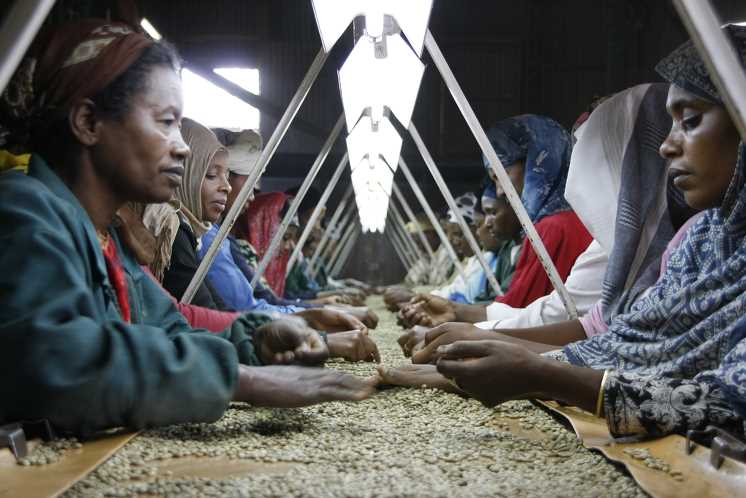In association with DFID, we gave participants an open forum to explore new ways of working on three discrete areas of the post-2015 agenda: beyond-aid partnerships, beyond-aid financing and beyond-aid governance.
The Sustainable Development Goals will represent an important opportunity to address the underlying causes of poverty and will have substantive implications ‘beyond aid’, requiring institutional, financial and policy actions by both developed and developing countries in what is an increasingly interdependent world.
Key points to come out of the meeting:
Tell the story better – develop an MDG to SDG narrative that celebrates success, captures the imagination of political leaders and ordinary citizens, focuses on the end-game and drives positive action and change.
Demonstrate leadership and ambition – all governments and organisations should ensure that Ministers, CEOs and other leaders turn up in Addis with a high level of ambition and commitment.
Empower, listen to and act on the priorities of the poorest countries – Bridge the gap between negotiations at the UN in NYC and the practical actions desired by developing countries.
Don’t let political point scoring lower ambition around the negotiation table and create a race to the bottom – imaginative pledges and commitments by both traditional and emerging donors are needed in Addis to open up discussion.
Don’t let the breadth of the agenda lead to institutional power broking or increased bureaucracy and prevent real change – if you lobbied for a goal or target then lobby just as hard to create the right structures and institutions to successfully deliver it: start a real, action based, dialogue on implementation and institutional reform. If this means leading change within your own organisation, then do it.
‘Means of implementation’ is more than just financing – a credible governance structure underpinned by a clear action plan, is needed for successful implementation. This should embrace and include aid and non-aid financing models, empower south-south cooperation, allow flexible and nimble partnerships to tackle specific issues and engage new and innovative structures such as the BRICS bank and the GPEDC.
The difficulty of designing more coherent non-aid policies that will benefit developing countries should not be underestimated and the implementation of those policies will require technical assistance and other support to help countries ensure that their domestic policies and institutions are able to maximise the benefits they reap from more coherent international policies.
Further focussed discussions could be usefully held to agree what actions, partnerships and accountability mechanisms would work best to tackle issues such as climate change, health, water, disaster insurance, protection from global shocks and capacity building.
Maximise the impact of 2015 by linking all key international meetings and being focussed about what they can deliver towards a better future – the Third International Conference on Financing for Development in Addis in July, the post-2015 Summit and UN General Assembly in September, the 21st Session of the Conference of the Parties to the United Nations Framework Convention on Climate Change and the World Trade Organisation Ministerial Summit in December, should all be clear about how their outcome agreements can contribute to a fairer, cleaner, more equal and developed world.
Additional information
Blog: Beyond Aid: the Future of UK Development Cooperation by Simon Maxwell
Video: Perspectives for a global partnership Part 2 by Danny Sriskandarajah, Secretary General, Civicus, Johannesburg
Further reading
ecdpm: Universality and Differentiation in the Post-2015 Development Agenda
ecdpm: Use of PCD Indicators by a Selection of EU Member States: A Brief Analysis and Overview
House of Commons International Development Committee: The Future of UK Development Cooperation: Phase 2: Beyond Aid
Sci Dev Net: Bringing science and development together through original news and analysis
Social media
Social media engagement is encouraged for this event. Comments might include a summary of what is being said (non-attributable), the direction of the discussion or general impressions of the conference.
For Twitter users, please include @WiltonPark when tweeting and we will retweet your message.
Partners on Twitter: @DFID_UK
Suggested hashtags: #FFD3 #post2015












